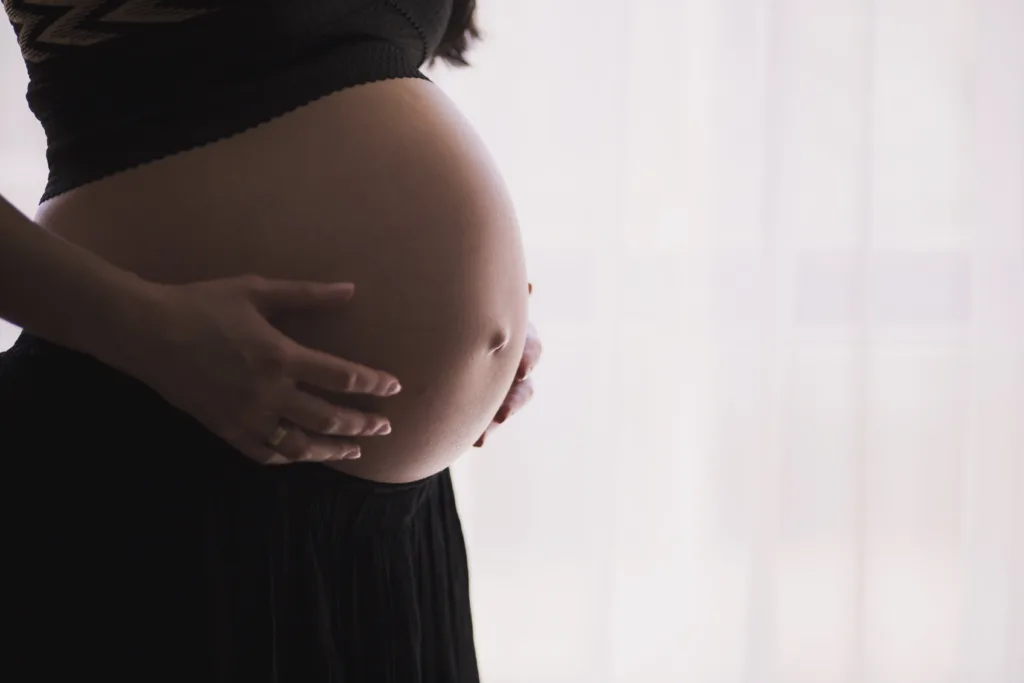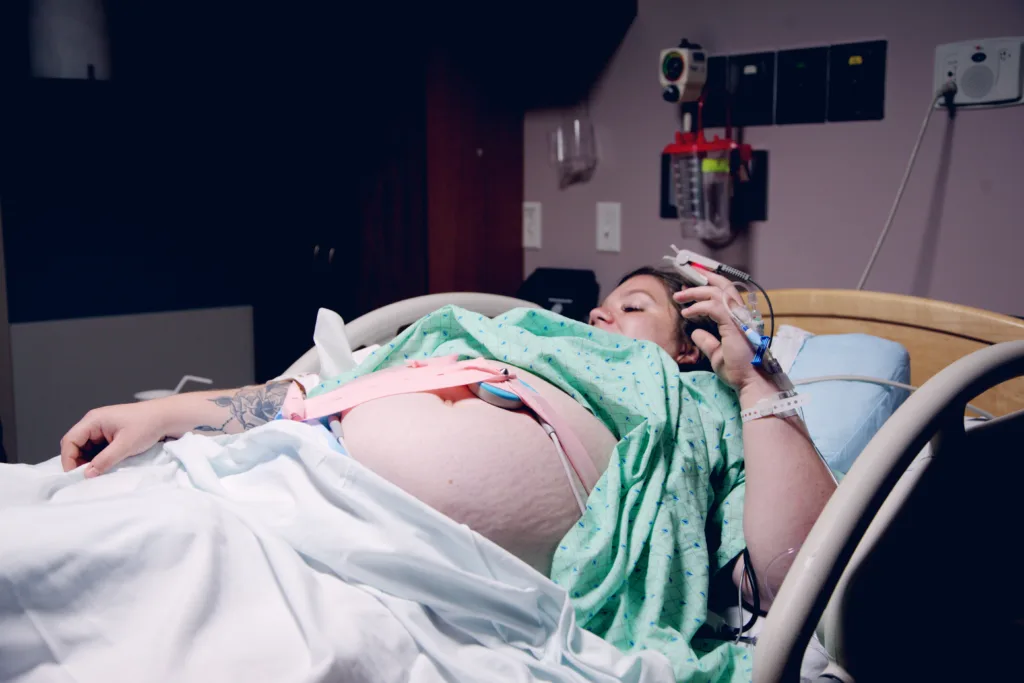Pregnancy is an exciting and transformative time in a woman’s life. However, it can also be a confusing and overwhelming experience, especially when it comes to understanding the different sensations you may feel in your body. One of the most well-known aspects of pregnancy are contractions, which can be a sign that labor is near. But how do you know what contractions feel like? Do they feel like gas pains? In this blog post, we’ll explore the answer to this question and provide you with a detailed understanding of contractions.
First, it’s important to understand what contractions are. Contractions are the tightening and releasing of the muscles in your uterus. These muscles are responsible for helping your baby move down the birth canal when it’s time for delivery. There are two types of contractions: Braxton Hicks and true labor contractions. Braxton Hicks contractions, also known as false labor, are practice contractions that help prepare your body for labor. These contractions are typically painless and irregular. True labor contractions, on the other hand, are regular and becme increasingly intense over time.
So, do contractions feel like gas pains? The short answer is no. While some women may describe contractions as feeling similar to gas pains, the two sensations are not the same. Contractions are typically described as a dull, achy, or crampy feeling in the lower abdomen or back. The pain may start out mild and gradually increase in intensity. You may also feel pressure in your pelvis and thighs. Gas pains, on the other hand, are typically described as sharp, stabbing pains in the abdomen. The pain may come and go and may be accompanied by bloating or discomfort.
It’s important to note that every woman’s experience with contractions is different. Some women may feel intense pain while others may only feel mild discomfort. The timing and frequency of contractions can also vary. If you’re unsure whether you’re experiencing contractions or gas pains, it’s always best to speak with your healthcare provider. They can help you determine what’s normal and what’s not.
Contractions are a normal part of pregnancy and can be a sign that labor is near. While they may feel similar to gas pains for some women, the two sensations are not the same. If you’re experiencing any discomfort or pain during your pregnancy, it’s important to speak with your healthcare provider. They can help you understand what’s normal and what’s not and provide you with the best care possible.
Do Braxton Hicks Contractions Feel Like Gas Pain?
Braxton Hicks contractions can sometimes feel similar to gas pain, but they are not exactly the same. Braxton Hicks contractions are often described as a tightening or squeezing sensation in the abdomen, wile gas pains may feel more like cramping or a dull ache. Additionally, Braxton Hicks contractions are typically irregular and do not increase in intensity or frequency over time, whereas gas pain may come and go or become more severe depending on what you have eaten or how much gas is trapped in your digestive system. It’s important to note that every woman’s experience with Braxton Hicks contractions and gas pain may be different, so it’s always best to talk to your healthcare provider if you have any concerns or questions about what you are feeling.

Experiencing Contractions for the First Time
When contractions first start, they can feel like cramps in your lower stomach, similar to period pain. You may also experience dull lower back pain or pain in your inner thigh that radiates down your legs. At the beginning, your contractions will be short and occur around 30 minutes apart. They may feel like a tightening sensation in your abdomen that lasts for abut 20-30 seconds. As labor progresses, contractions will become longer, stronger, and closer together. It’s important to pay attention to the frequency and intensity of your contractions to determine when it’s time to head to the hospital or call your healthcare provider.
Identifying Signs of Contractions Versus Gas
It can be difficult to differentiate between contractions and gas, as the symptoms can be similar. However, there are a few key differences to look out for. If your belly tightens up and then softens afterward, it is likely a contraction. This tightening will occur at regular intervals and may be accompanied by pain or discomfort. On the other hand, if you feel full or bloated in your belly without any tightening or intervals of pain, it is more likely to be gas. It is important to pay attention to the timing and duration of thse symptoms, as well as any other accompanying symptoms, to help determine whether you are experiencing contractions or gas. If you are unsure, it is always best to consult with a healthcare provider to ensure proper diagnosis and treatment.
Signs of Contractions
When you’re having contractions, you’ll feel your uterus muscles tighten up and then relax. You may also feel a cramping or squeezing sensation in your lower abdomen, similar to menstrual cramps. As contractions progress, they become more frequent, longer, and more intense.
To determine if you’re having contractions, you can time them using a stopwatch or a smartphone app. Start the timer when the contraction begins and stop it when it ends. Note how long each contraction lasts and how far apart they are from each other.
If you’re experiencing contractions that are coming regularly, lasting for at least 30 seconds, and are increasing in intensity, it’s likely that you’re in labor. Additionally, if you notice any vaginal bleeding or fluid leakage, it’s important to contact your healthcare provider immediately.
It’s also important to note that some women experience Braxton Hicks contractions, whih are false contractions that can occur throughout pregnancy. These contractions are generally mild and irregular and don’t typically indicate labor. If you’re unsure whether you’re experiencing true contractions, it’s always best to contact your healthcare provider for guidance.
The Impact of Contractions in the Early Stages
Contractions can be uncomfortable or painful, but it’s important to note that every woman’s experience is different. In the beginning stages of labor, contractions may feel similar to menstrual cramps or mild discomfort in the lower abdomen. However, as labor progresses, contractions typically become stronger and more intense. The pain can vary between women, with some experiencing manageable discomfort and others feeling more intense pain. It’s important to communicate with your healthcare provider about your pain levels and to have a plan in place for pain management during labor.

Differentiating Between False Labor and Real Labor
It can be difficult to differentiate between false labor and real labor, but there are a few key factors to consider. False labor contractions are usually irregular and don’t increase in intensity or frequency over time. They may also be felt in the front of the belly and can be relieved by changing positions or resting. Real labor contractions, on the other hand, start in the lower back and shift to the front. They become more intense and frequent over time, and don’t go away with chages in position or rest. Other signs of real labor include the breaking of the water, bloody discharge, and the baby dropping lower in the pelvis. If you’re unsure whether you’re experiencing false or real labor, it’s always best to contact your healthcare provider for guidance.
Conclusion
In conclusion, contractions are a natural part of pregnancy as your body prepares for labor. Braxton Hicks contractions are false contractions that can occur throughout pregnancy, but they are usually painless and feel like pressure in the upper abdomen. As you get closer to labor, you may experience true contractions that feel like cramps in the lower stomach, and they may be accompanied by lower back pain or pain in the inner thigh. It’s important to pay attention to the timing and frequency of your contractions to determine if they are true labor contractions or false contractions. If you have any concerns or questions abut your contractions, it’s always best to speak with your healthcare provider to ensure a safe and healthy pregnancy.
